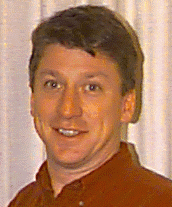Rhythm Awareness and Unavailability Inferencing
 Bo
Begole, PARC
Bo
Begole, PARC
bo![]() parc.com
parc.com
Seminar on People, Computers, and Design
Timing is everything. In humor, in music, in dance, and also in everyday group activities, the best results require tight coordination with others. We develop a sense of timing by observing patterns over time, which is a particular challenge for members of distributed groups who have limited awareness of each other's comings and goings.
This talk describes technologies aimed to help geographically distributed groups develop a sense of timing and also to introduce a sense of timing to computer applications. I will show examples of recurring temporal patterns in visualizations of people's online presence in a location-aware instant messaging system. I will describe the construction of a statistical model that extracts and describes significant recurring periods of non-presence using expectation maximization and clustering. The computational model was compared against users' perceptions of their own patterns with mixed results. The visualizations and computational model were used to augment a communication application to predict when others will be reachable.
I will also describe Lilsys, a sensor-based system for inferring when remote office colleagues are "unavailable", which is an attempt to counter the potential downside of increased accuracy of predictions of reachability. I will describe user reactions from a small-scale deployment.
Joint work with John Tang, Rosco Hill and Nick Matsakis, conducted at Sun Microsystems Laboratories.
![]()
Bo Begole is the manager of the Ubiquitous Computing area at the Palo Alto Research Center where his current research spans media device interoperability, sensor network middleware, activity detection and other technologies. His research motivation is to create technologies that enable people to do things they couldn't do before. He received a Ph.D. in computer science from Virginia Tech in 1998. Prior to his studies, Bo served in the US Army as an Arabic language interpreter.
![]()
View this talk on line at CS547 on Stanford OnLine
Titles and abstracts for previous years are available by year and by speaker.